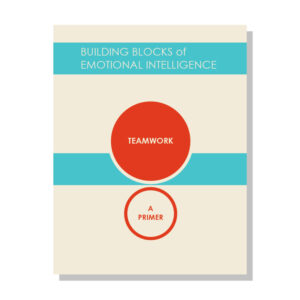

Inspirational Leadership Arises from a Working Understanding of ESI
January 5, 2018 Time to read: 4 min.The process of becoming an inspirational leader involves the development of multiple Emotional and Social Intelligence (ESI) competencies, each contributing to new realizations about how to lead more effectively.
Emotional self-awareness and emotional self-control drive this transformation, particularly in the context of learning to apply ESI in real-time social interactions. That was revealed in part of my 2016 study on leadership, mindfulness, and emotional intelligence. The analysis included use of the ESI model developed by Daniel Goleman and Richard Boyatzis, and indicated that leaders linked strength in inspirational leadership to greater career success and satisfaction.
The Competency of Inspirational Leadership
Inspirational leadership focuses on an individual’s interest in, and capacity to lead, regardless of their formal title or position within an organization. Strength in this competency is exemplified by the ability to unify others towards a common goal, which involves other competencies such as influence and organizational awareness.
An inspirational leader will exhibit a sense of pride in his/her work, but also understand the importance of creating a sense of group ownership, and an engaging work environment. The ability to effectively present new or challenging ideas to a group is another attribute of inspirational leaders, as is the ability to lead during times of crisis.
What Inspirational Leadership Looks Like in the Workplace
The leaders I interviewed for my research spoke extensively about how they motivated and inspired their teams. However, they also revealed that these capabilities arose from development of self-awareness. This process was described as being profound, and transformational in relation to participants’ understanding of what is required to be a truly effective leader. For example, the Head of Talent Development for one of the largest hospital networks in the U.S. linked inspirational leadership to a new understanding of the way feelings influence engagement, which he summarized as “we need to really access the way we treat people, the way we treat ourselves, the way we understand emotion in the work place.” In this instance, new realizations about the role played by emotion in workplace performance significantly influenced this participant’s beliefs, and behaviors relating to inspirational leadership strategies.
Another participant, the Senior Manager for a leading global consulting firm, elaborated on the importance of inspiring employees via authentic relationships: “you develop this sort of connection with the person you’re managing…there’s this empathy that goes on when the person you’re managing respects and appreciates you for trying to understand what’s really going on.”
Other leaders shared details of how they engaged their direct reports on an emotional level. For instance, the senior legal counsel for a leading international healthcare product manufacturer talked about the importance of modeling behaviors in the context of inspirational leadership: “I’m going to try my best and do the best I can, and I think just that one little thing can be inspiring to my team.”
Participants also frequently mentioned the importance of earning trust, such as an HR leader for a major US healthcare network, who stated “I’ve always really worked to try to build trusting relationships with individuals through, not necessarily my words, but my actions.” Another participant, who has been responsible for supply chain operations at three well-known global organizations, touched on the value of demonstrating ethical behavior, saying “… if that leader is doing it with integrity, people are all in… and will join with you at the hip to do what you’re trying to do.”
Developing Yourself as an Inspirational Leader
The leaders I interviewed believed that their success depended upon their ability to effectively articulate team objectives, and actively support others in achieving them. They understood that success required them to demonstrate the behaviors needed to reach those goals on a daily basis as well. Fundamental to these realizations was an awareness that others can detect exaggerated statements, false confidence, and insincerity.
There are a number of steps you can take to develop the type of engaged and supportive workplace relationships associated with Inspirational Leadership. A good place to start is honestly assessing whether or not you are overloading yourself with tasks that could be delegated to others. This is an important step, since task-oriented workload takes away from time that can be invested in personal and team development. In addition to protecting you from burnout, properly managed delegation cultivates trust and respect between leaders and their staff as well.
Part of this assessment should also include some reflection on why you may have unrealistic expectations for yourself concerning the amount and type of work you should be able to support.
In addition, give some thought to what you believe others expect of you, and whether or not some of your workplace behavior may be motivated by trying to fulfill standards that are difficult to live up to. The objective of this activity is to begin exploration of beliefs around workplace roles with others as part of a trust-building process, contributing to the following:
- honest dialog about performance expectations and areas for improvement
- stronger relationships based on openness and vulnerability
- sharing of lessons learned from failures and successes
- opportunities to share responsibilities and recognition
Leaders told me that involving subordinates in activities such as risk assessment and decision-making also had a positive impact on team loyalty. They reported that being open about their own feelings of fear and worry relating to these and other leadership activities helped their direct reports better understand, and relate to, the difficulties of being a leader. Overall, leaders indicated that their ability to inspire performance improved as they invested more time into cultivating personal connections with others through these types of activities.
Recommended Reading:
 Our new series of primers focuses on the 12 Emotional and Social Intelligence Leadership Competencies, including Emotional Self-Awareness, Adaptability, Influence, Teamwork, and Inspirational Leadership.
Our new series of primers focuses on the 12 Emotional and Social Intelligence Leadership Competencies, including Emotional Self-Awareness, Adaptability, Influence, Teamwork, and Inspirational Leadership.
The primers are written by Daniel Goleman and Richard Boyatzis, co-creators of the Emotional and Social Intelligence Leadership Competency Model, along with a range of colleagues, thought-leaders, researchers, and leaders with expertise in the various competencies – including the author of this article, Matthew Taylor.
See the full list of primers by topic, or get the complete collection!







